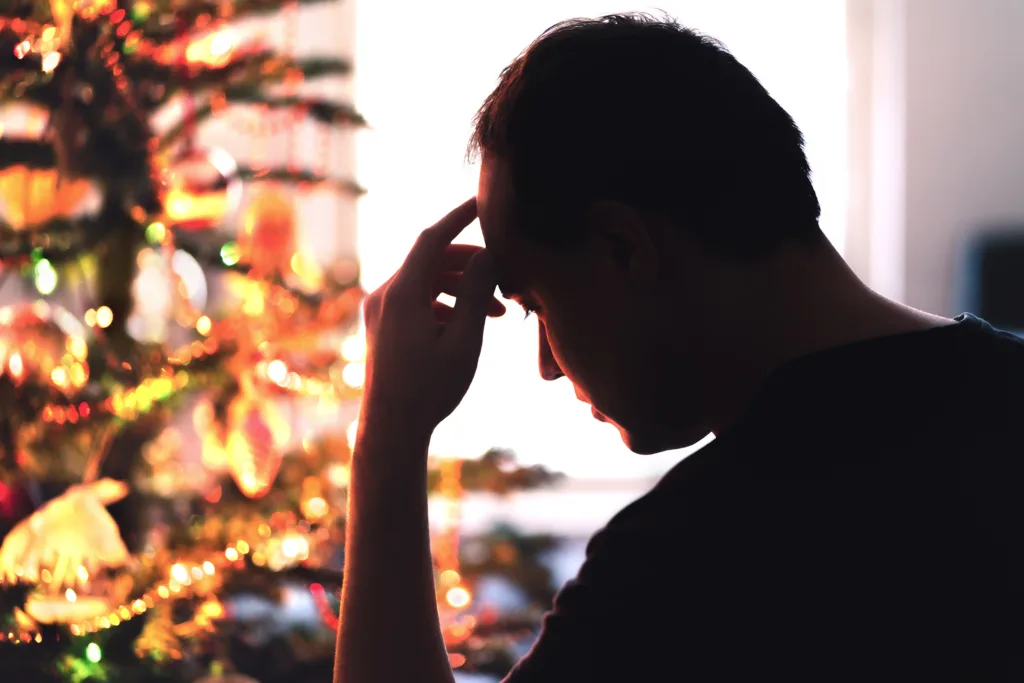Your Guide to Overcoming A Relapse During the Holidays

Relapses can occur during any time of year, but they can be especially prevalent during the holiday months of November, December and January.
Between unhealthy or unpleasant family dynamics, financial stress and weather that makes you feel sleepy and depressed, these winter months can be difficult for anyone.
For those striving to spend this holiday season sober, the added stress and increase in social factors and interactions can make this time of year especially challenging. While it is absolutely possible for anyone to spend the holidays sober, sometimes a relapse happens.
It can be difficult to know where to start after a relapse, but we’re here to help. In this article, we’re going to give you a few practical tips for how you can get back on track with recovery.
How to avoid relapse during the holidays
Preventative care is the best kind of care, so if you’re reading this article as part of your holiday relapse prevention plan, that’s a great step in the right direction. Here are some other tips to help you avoid a relapse during the holidays.
1. Know your triggers
Being aware of what your potential holiday relapse triggers can be is also going to be very helpful for recognizing which situations or people will be difficult to navigate.
For example, if you have a friend or family member who likes to throw a Christmas party every year and provides a self-serving bar to all of their guests… it might be better to socialize with that loved one in a different environment.
2. Be comfortable saying no
There will likely be some people you do not want to disclose the circumstances of your recovery to (which is completely within your right), so you’ll find there are different ways to say no.
Practice saying no to people without providing an explanation as to why you aren’t drinking; if you think there are people you may want to confide in, you can practice those responses too.
3. Stay connected to your network
Your personal and professional network are going to be two extremely beneficial lifelines during these more challenging times of year, or difficult phases of your recovery journey.
You can talk to a trusted loved one about being your “sober buddy” at parties (someone who will also abstain from drinking). If multiple loved ones are aware of your circumstances and they love, support and encourage you, then you’ve got your personal support network right there.
Your professional network includes the doctors, nurses, physicians, therapists and other people who are continuing to actively help you through your recovery. Completing a substance abuse recovery program is not the end of recovery, but the beginning of your new sober lifestyle.
If a relapse has already occurred though, and you’re trying to figure out how to get back on track, go ahead and scroll to the next section, we’ll walk you through it there.
How to overcome a relapse during the holidays
Knowing how to resume your recovery after falling into a relapse can be discouraging, but it’s nothing you can’t come back from; we’re here to help you get right back on track.
If the relapse included a binge or resulted in an overdose, a detox may be necessary, but this should never be attempted at home due to the dangerous and potentially life-threatening side effects that can occur.
If the relapse is not that severe, the following tips will be helpful.
1. Prioritize your full-spectrum health
There are many reasons why a relapse can occur; you might already be aware of it. Living by yourself, continuing socialization with people who have substance use disorders, mental health issues and a lack of purposeful goals are all examples of potential factors.
Relapsing is an opportunity to assess your physical, mental, emotional and spiritual health. Be empathetic, but honest as you take a look at your life — where are you struggling?
Once you determine which areas of your life could benefit from additional attention and care, you can speak with your physician or therapist about how you can better prioritize that area.
2. Reframe your mindset
For some people, a single relapse is enough to undo all of their progress. Oftentimes, this is due to the perception that relapsing is equivalent to failing recovery, and that simply isn’t true.
As disappointing and frustrating as a relapse can be, it can also be a powerful experience that teaches you valuable lessons about yourself and your recovery. For many people, relapsing is often a turning point in their journey because it emboldens them to commit even further.
So in the face of temptation, at a low moment, in a dark place, remember why you started. Remember why you pushed through the withdrawals, why you kept going to the support group meetings, and why you’re still working so hard to achieve long-term sobriety.
A relapse is not a failure unless you give up on your recovery altogether.
3. Lean into your support network
Your personal and professional support networks are not just there for you in the preventative stages, or only there to help out in the initial phases of recovery. They’re also meant to be there for you if and when you relapse, and both types of support are beneficial to your recovery.
If you’ve recently relapsed and are struggling to get back on track, we’re here to help.
Speak with a qualified advisor today
Silver Ridge Recovery offers a premier addiction rehabilitation program specifically designed to help midlife adults find peace and healing.
Using a combination of traditional and holistic therapies, you’ll receive a comprehensive treatment plan that’s been customized to meet your individual needs. We recognize the importance of helping you achieve not only physical recovery but also mental, emotional and spiritual healing.
If you’re ready to get back on the track to sobriety, we’re ready to help.
Send us a message or give us a call today to get started.









